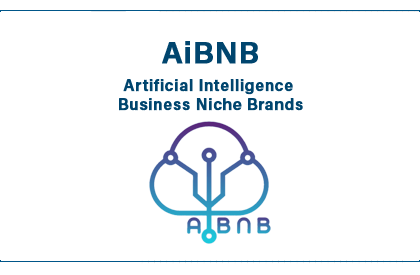AI is taking over business management
Artificial Intelligence is changing how businesses work. Machine Learning is leading this change. Companies use AI to make their operations smoother and stay ahead.
AI helps with managing B2B relationships and keeping track of suppliers and vendors. It also handles new regulations, tax obligations, and more. This is a big shift in how businesses operate.

As AI becomes more common in business, it’s key for owners to know how to use it. This article will cover how AI and Machine Learning can help manage businesses. We’ll look at how AI is evolving and its benefits for businesses.
Key Takeaways
- Artificial Intelligence is transforming Business Management by automating tasks and improving efficiency
- Machine Learning is a key component of AI-driven Business Management solutions
- AI can help businesses manage B2B relationships, track suppliers and vendors, and stay on top of regulations and tax obligations
- Businesses that leverage AI-driven solutions can gain a competitive edge in the market
- Understanding AI and its applications is crucial for business owners to make informed decisions about their Business Management strategy
- AI is becoming increasingly essential for Business Management, and companies that adopt AI-driven solutions will be better equipped to succeed
The Evolution of Artificial Intelligence in Business Operations
Artificial intelligence is now key in business operations. It changes how companies handle their daily tasks and interactions. AI helps automate tasks, making businesses more efficient and making decisions based on data.
This move towards automation is driven by the need for innovation. It helps businesses stay competitive in a fast-changing market.
AI is now used to manage B2B relationships. This streamlines operations and boosts customer satisfaction. AI has also led to new business models, products, and services. This drives growth and revenue for innovative companies.
- Improved efficiency and productivity
- Enhanced customer experience
- Increased revenue and growth
- Better decision-making with data-driven insights
As more businesses use AI, we’ll see big changes in how they operate. Automation and innovation help companies stay ahead. They can reach their goals in a fast-changing market.
Understanding AI-Driven Business Management Systems
Business owners can use AI to make their Business Operations better. This means they can work more efficiently and save money. With Technology, companies can automate tasks, make smarter decisions, and give customers a better experience.
Adding Automation to business systems helps companies handle lots of data fast and right. This lets them focus on important tasks. Some big advantages of AI in business systems are:
- Improved operational efficiency
- Enhanced decision-making capabilities
- Increased customer satisfaction
As businesses grow, it’s key to see how AI can help in different areas. This includes supply chain management and customer service. By using Technology and Automation, companies can stay competitive and succeed in the long run.
How AI Transforms Supplier Relationship Management
Artificial intelligence is changing how businesses handle their supplier relationships. AI helps companies evaluate suppliers, track their performance, and predict supply chain issues. This makes supply chains better, saves money, and strengthens ties with suppliers.
AI is key in improving Supplier Relationship Management. It automates tasks, making supplier management smoother and more effective. Predictive Analytics helps forecast problems, so companies can act early to avoid them.
- It makes choosing and evaluating suppliers better.
- It lets companies track supplier performance in real-time.
- It uses predictive analytics for better supply chain planning.
- It automates contract management and ensures compliance.
Using AI for Supplier Relationship Management gives businesses an edge. It automates tasks, predicts issues, and optimizes supplier relationships. This lets companies focus on making strategic decisions and growing.
Vendor Relations in the Age of AI
AI is changing how businesses work, especially in managing B2B relationships. It can make vendor relations better by improving communication and making processes smoother. This leads to stronger relationships with vendors.
AI can help businesses by taking over routine tasks like data entry and contract management. This lets teams focus on more important tasks. Effective vendor management is key to business success, and AI helps a lot.
Some good things about AI in vendor relations are:
- It makes communication and teamwork better.
- It helps manage risks and follow rules better.
- It makes work more efficient and productive.
As more businesses use AI, they will see big improvements in their vendor relations.
AI-Powered Regulatory Compliance Management
Managing regulatory compliance is now key for businesses. AI solutions help streamline these processes. This reduces the risk of not following rules and the penalties that come with it.
Regulatory compliance is complex and time-consuming. But AI tools can automate monitoring. This ensures businesses keep up with changing rules.
AI-driven solutions help businesses manage risks better. Risk management is vital in compliance. AI spots risks and suggests ways to fix them. This lets businesses tackle issues before they become big problems.
- Automated monitoring cuts down on manual checks and errors.
- It keeps businesses updated on new rules and requirements.
- It improves risk assessment and mitigation, helping businesses stay ahead of issues.
Using AI for compliance management helps businesses meet all rules. This reduces the risk of penalties and boosts reputation. AI makes compliance more efficient, allowing businesses to grow and develop.
Streamlining Tax Management with Artificial Intelligence
Artificial intelligence is changing how businesses handle taxes. AI helps automate tax calculations, cutting down on errors and boosting efficiency. This is especially important in B2B dealings, where tracking taxes can be a big challenge.
AI makes tax management better by helping companies plan and optimize their taxes. Automated tax calculations ensure accurate tax liabilities. Tax planning and optimization find ways to lower tax burdens. AI’s ability to analyze lots of data makes this possible.
Benefits of AI-Driven Tax Management
- Improved accuracy and efficiency in tax calculations
- Enhanced tax planning and optimization capabilities
- Increased compliance with tax regulations
- Reduced risk of human error and associated penalties
Businesses using AI for tax management see big benefits. AI makes tax work easier, freeing up time for more important tasks. With AI, tax management is a chance to grow the business, not just a hassle.

Implementation Strategies for AI Business Tools
Business owners can use AI to make their operations smoother. Effective implementation strategies are key for a smooth transition. They help avoid disruptions and make the most of AI.
Planning, deploying, and integrating AI tools into current operations are important steps. This ensures AI works well with what you already have.
For AI to work well, consider these steps:
- Look at your current operations to see where AI can help
- Make a clear plan with goals for AI use
- Train employees to use AI tools
- Set up a way to check if AI is working well
AI tools can help in many areas like supply chain, customer service, and finance. They can give businesses an edge, save money, and make customers happier. As businesses grow, using AI tools will become more crucial to stay competitive.
| AI Business Tool | Implementation Strategy | Benefits |
|---|---|---|
| AI-powered chatbots | Integrate with customer service platform | Improved customer engagement, reduced response time |
| AI-driven predictive analytics | Implement with supply chain management system | Enhanced demand forecasting, optimized inventory management |
| AI-based financial management tools | Integrate with accounting software | Automated financial reporting, improved financial planning |
Measuring ROI of AI Business Management Solutions
Business owners invest in AI solutions to see if they’re worth it. They measure the return on investment (ROI) to find out. ROI is key to checking if investments are working well.
For AI business management, ROI isn’t just about profits. It’s about doing a cost-benefit analysis. This means looking at the good things the solution brings, like better work and cost cuts. Then, compare these to the costs, like what you paid for it and what it costs to keep it running.
Key Performance Indicators
To figure out the ROI of AI solutions, businesses track important signs. These signs include:
- Revenue growth
- Cost savings
- Customer satisfaction
- Employee productivity
These signs show how well the solution works. They help businesses make smart choices about spending money.
Cost-Benefit Analysis Methods
There are ways to do cost-benefit analysis for AI solutions. Businesses can use:
- Net present value (NPV) analysis
- Internal rate of return (IRR) analysis
- Payback period analysis
These methods help figure out if the good things the solution does are worth the cost. They guide businesses in making smart investment choices.
Overcoming Common AI Implementation Challenges
Businesses often face challenges when implementing AI. One big issue is employee training and adoption. Workers need new skills to use AI systems well.
Another big challenge is data security considerations. AI needs access to sensitive data. Businesses must keep this data safe to avoid breaches.
Strategies for Overcoming Challenges
- Provide comprehensive employee training programs to ensure workers are equipped to work with AI systems.
- Implement robust data security measures to protect sensitive data and prevent breaches.
- Develop a clear AI implementation roadmap to ensure a smooth transition and minimize disruptions.
By understanding these challenges and developing strategies, businesses can succeed with AI. AI implementation needs careful planning and ongoing evaluation to overcome any issues.

| Challenge | Strategy |
|---|---|
| Employee Training and Adoption | Comprehensive training programs |
| Data Security Considerations | Robust data security measures |
| System Integration Issues | Clear AI implementation roadmap |
Future-Proofing Your Business with AI
AI is becoming more common in business. It’s key to use AI to keep your company ahead. AI helps drive innovation and boosts efficiency.
AI is great for managing complex relationships, like B2B interactions. AI-powered systems can sift through lots of data. They find patterns and predict outcomes. This helps businesses make smart choices and run better.
To use AI wisely, follow these steps:
- Invest in AI that fits with your current setup
- Make a detailed plan for using AI
- Train your team to work well with AI
By using AI and these strategies, your business can succeed for years.
AI is now a must for businesses, not just a nice-to-have. By focusing on AI and operations, companies can grow and succeed in a fast-changing world.
| Benefits of AI-Driven Business Operations | Description |
|---|---|
| Improved Efficiency | AI can handle routine tasks, saving time for important work |
| Enhanced Decision-Making | AI analytics give insights for better decisions |
| Increased Competitiveness | AI keeps businesses innovative and growing |
Best Practices for AI-Driven Business Management
As businesses use more AI, it’s key to know the best ways to use it. Effective AI-driven business management needs both tech skills and human checks. By following these tips, companies can get the most out of AI and avoid risks.
Some important things to think about for AI management include:
- Creating a clear AI implementation roadmap
- Establishing human oversight and accountability
- Ensuring data quality and security
Keeping human oversight is vital in AI management. It makes sure AI systems match business goals and values. This balance between AI and human judgment helps businesses succeed and stay ahead.
By sticking to these best practices and using a complete approach to AI management, companies can reach AI’s full potential. With the right mix of tech and human know-how, businesses can lead in a fast-changing market.
Conclusion: Embracing the AI Revolution in Business Management
The AI revolution is changing how we manage businesses. It helps companies work better, improve relationships with suppliers, follow rules, and be more efficient. AI makes businesses future-proof, helping them stay ahead in a fast-changing market.
It’s important to welcome this new technology and use AI-driven business management tools. A good AI plan can lead to smarter decisions, better analytics, and automated tasks. This boosts your profits and sets your business up for success and growth.
It’s time to start your AI journey. Look into the new solutions and strategies we talked about. With the right attitude and openness to change, your business can excel in the AI revolution era.
FAQ
What is the evolution of artificial intelligence in business operations?
Artificial intelligence (AI) has changed from manual to automated management in business. It’s now key for success, handling B2B relationships and more. This includes tracking suppliers and keeping up with new rules and taxes.
How do AI-driven business management systems work?
These systems use machine learning and natural language processing. They automate tasks, improve decisions, and enhance customer service. This makes operations smoother, supply chains better, and ensures rules are followed.
How does AI transform supplier relationship management?
AI makes managing suppliers better by automating checks and tracking performance. It also predicts supply chain needs. This cuts costs and strengthens supplier ties.
How does AI impact vendor relations?
AI helps improve vendor communication and processes. It also strengthens vendor relationships. Businesses can manage vendors better with AI.
How can AI-powered regulatory compliance management benefit businesses?
It automates monitoring and risk assessment. It also keeps up with regulatory changes. This ensures businesses follow rules, lowers risks, and keeps them updated.
How can AI streamline tax management for businesses?
AI simplifies tax management with automated calculations and planning. This makes tax work easier, more accurate, and helps in optimizing taxes.
What are the common challenges associated with AI implementation?
Challenges include training employees, ensuring data security, and integrating systems. Overcoming these is key for successful AI use and its benefits.
How can businesses future-proof their operations with AI?
Businesses can use AI to innovate and stay competitive. Understanding AI’s role helps develop strategies for success and maximizing AI benefits.
What are the best practices for AI-driven business management?
Best practices include planning an AI roadmap and keeping human oversight. This ensures AI is used effectively, benefits are maximized, and risks are minimized.




